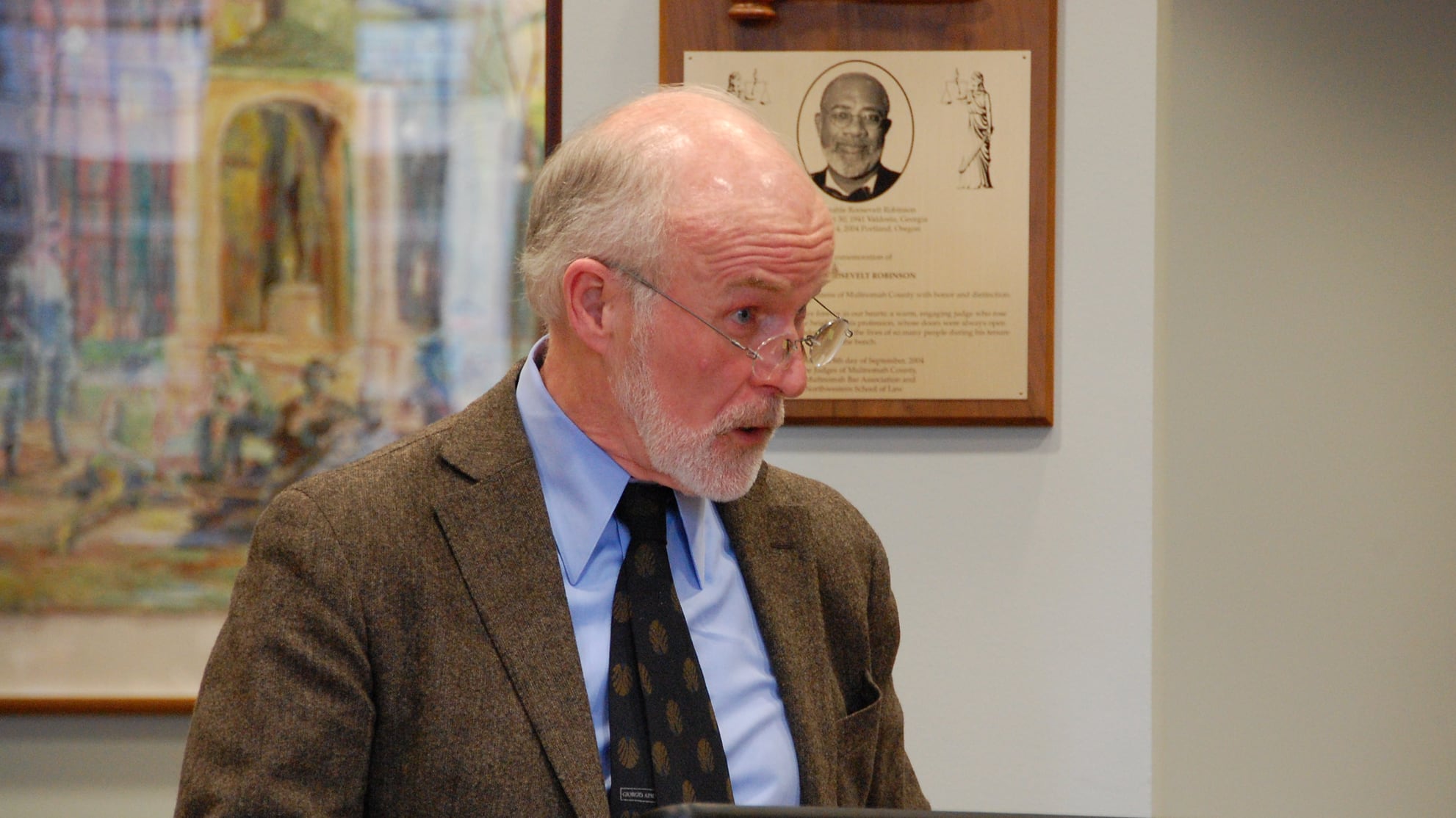It's as if one of the highest-profile Portland criminal cases tried last year never existed.
In May 2018, a Multnomah County grand jury indicted Charles McGee and Aubré Dickson on charges they'd sexually assaulted Erica Naito-Campbell in May 2012.
The indictments stemmed from a boozy evening that ended at McGee's home, where Naito-Campbell told police that both men, whom she knew from a training program for young leaders, assaulted her.
All three were prominent figures: McGee ran a nonprofit and was a candidate for Multnomah County commissioner; Dickson chaired the state's affordable housing board; and Naito-Campbell was a granddaughter of the late Bill Naito, who built a real estate fortune.
On March 22, 2019, Multnomah County Circuit Judge David Rees ruled the men were not guilty. "I cannot conclude to a moral certainty that the defendants are guilty of the crimes they are charged with," Rees concluded after a seven-day trial.
In most circumstances, all records relating to the Portland Police Bureau's investigation and the Multnomah County district attorney's decision to prosecute would have become public records upon conclusion of the trial.
Instead, those documents are now sealed from the public's view.
Records compiled by the Oregon Judicial Department show there has been a big increase in motions to set aside, or seal, cases in Multnomah County over the past three years—they are up nearly 60 percent from 2017 to 2019. (Statewide, defendants seek to have records sealed in about 1 percent of cases. Judges grant two-thirds of those requests.)
It's unclear what's behind the increase. Some lawyers attribute it to the tide of criminal justice reform. Others point to the proliferation of public records on the internet. "It's easier to find people's records online," says Lisa Ludwig, a Portland criminal defense lawyer. "That means they have more of an incentive to get the record cleared up."
But some see sealing records as a contradiction to the premise that courts and court proceedings should be open to the public.
"It runs contrary to everything we believe in Oregon about transparency and justice and honesty in the system," says Tung Yin, a professor of criminal law at Lewis & Clark College's Law School.
Sometime last fall, McGee and Dickson availed themselves of an Oregon law that allows defendants who have been arrested but acquitted (or never tried) to scrub their records from the system.
Christine Mascal, McGee's attorney, says that's a logical and fair conclusion to the matter. "The 'public's right to know' was accomplished with the very public trial, which, appropriately ended with a verdict of not guilty," Mascal says.
The process is called "setting aside" an official record.
Although such requests are increasing, not many defendants have the knowledge and the money to go through the process: hiring an attorney, paying for an Oregon State Police background check, and covering court costs.
Bobbin Singh, executive director of the Oregon Justice Resource Center, says the process should be cheaper and simpler and therefore broadly accessible.
"After an appropriate time, records should be automatically expunged in most cases," Singh says. "People shouldn't be defined for the rest of their lives by the worst thing they've done."
Those convicted of crimes can also get their records sealed, although the process is complicated. Those convicted of class C felonies and misdemeanors can seek expungements if they've stayed out of trouble for three years. There are limits, however.
Defendants charged with class A and B felonies—homicide, rape and other violent crimes—cannot get their cases sealed.
"After a motion is granted, all official records of the arrest and conviction are sealed," the OJD website says. "In the eyes of the law, the arrest or conviction did not occur and the record does not exist." (A new expungement statute, aimed specifically at clearing the records of those convicted of marijuana-related crimes, went into effect Jan. 1.)
Josh Marquis, former Clatsop County district attorney and the state's longtime representative on the National District Attorneys Association, says Oregon's set-aside law is friendlier to defendants than most states'. Some do not seal police records, for instance.
Rosemary Brewer, executive director of the Oregon Crime Victims Law Center, says sealing records can unfairly negate a narrative that has often been traumatic for a victim to tell.
"An acquittal or a not guilty verdict doesn't mean nothing happened, it means the state didn't prove its case beyond a reasonable doubt," Brewer says. "Sealing the record is saying nothing happened."
Erin Olson, a former prosecutor who now represents victims, thinks the law leans too far in favor of defendants.
"A crime victim shouldn't have a record sealed for all eternity," Olson says. "That's pretty oppressive to victims."
Stephen Houze, Dickson's attorney, disagrees. He says sealing records is a routine matter that reflects the reality of a court's verdict.
"It is not controversial in the slightest that Oregon law should provide this measure to assure future privacy to a person who was publicly charged with a crime but found not guilty at trial," Houze says in an email.
"The power of the prosecution is vast but not without limit. Prosecutors can charge someone with a crime, but our judicial system alone determines guilt or innocence."
Olson, who's part of a legislative work group on juvenile expungements, says reforming the criminal justice system is overdue but should also include consideration for those who have been harmed.
"It's very difficult for victims to make a report and then have that record sealed," Olson says. "That's not the sort of balance Oregon voters intended when they gave crime victims constitutional rights."
The nonprofit Journalism Fund for Willamette Week provided support for this story.

